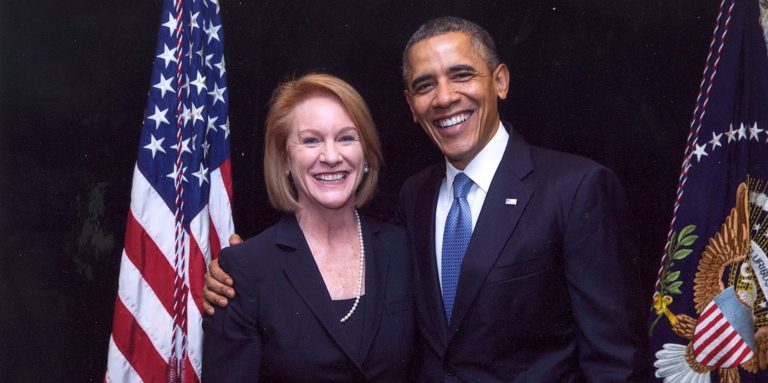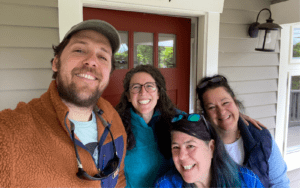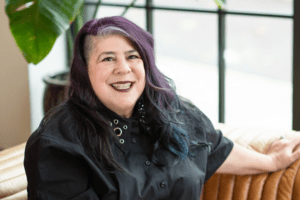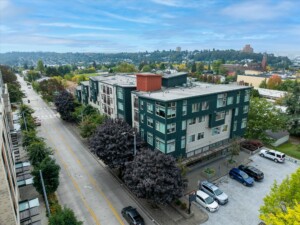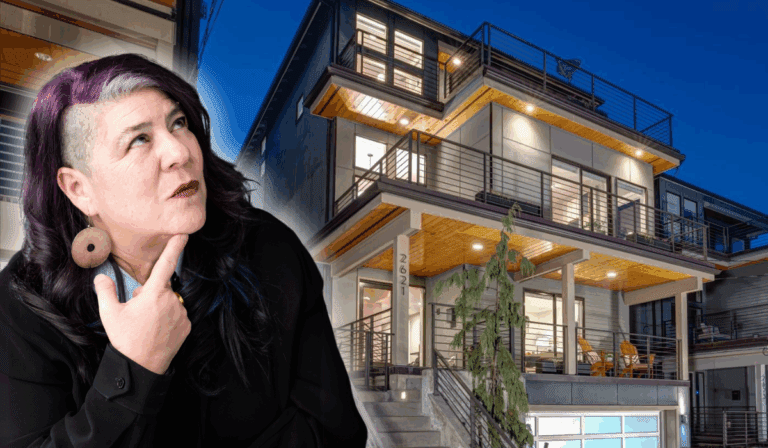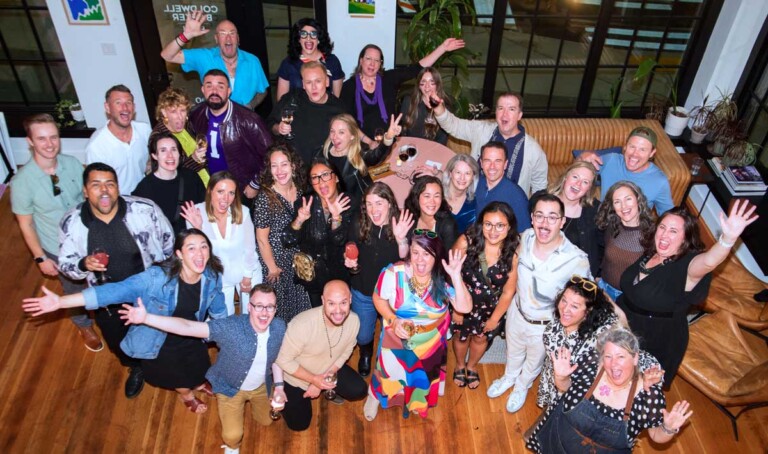Jenny Durkan served as United States Attorney for the Western District of Washington under President Obama. She is undoubtedly one of the highest-profile candidates for Seattle’s mayoral race, and has received some high profile endorsements, along with a healthy war chest for the campaign. At this point, she seems to be rallying her base, and her response to our questions below are some of the first concrete policy plans we’ve seen from her campaign.
Arts Support and Funding
The wry question in the local art scene these days is, “How fast are you going to move to Tacoma?” Seattle needs a thriving arts community to be a truly cosmopolitan city. The Arts & Cultural Districts program is in its nascence, and its efficacy is still in question. How do you see yourself as the mayor increasing and supporting our local arts community?
Jenny Durkan: The vitality of the arts community is an important measure of the health of any City. I plan to vote for the Cultural Access proposal on the primary ballot in King County; supporting the arts and increasing accessibility for all is very important. As mayor, I will continue to support the Office of Arts & Culture (ARTS) to ensure our city’s public art program and cultural partnerships grant programs are able to thrive and support local art in our communities. The Creative Advantage initiative is an example of a program that helps build a city that embraces creativity and provides a platform for people to engage in and benefit from diverse arts and cultural experiences. I would also work with the City’s Race and Social Justice Initiative as we aim to eliminate institutional racism in our programs, policies, and practices especially relating to the arts.
Affordable Housing and Homelessness
Housing, homelessness, and affordability are often entwined but have different solutions. Without a doubt the housing levy dollars have not been making its way back into the community as it has in the past. Rental advocacy is starting to make its way through the community with different responses. Regardless, housing is a global issue and there is not a lot we can do about rising home prices. However, there is a lot we can do to help our homeless and create better housing options for those who make below the average income in Seattle. Specifically, how would you better manage the money from the housing levy, create down payment assistance programs, and provide permanent housing for our homeless community? Considering that drugs, alcohol and mental health issues are intertwined within this community, what is your holistic approach to dealing with homelessness in Seattle?
Jenny Durkan: There is no question that homelessness is one of the most significant issues facing our city today, and if elected mayor, I will make it a priority. We have to be compassionate and respectful of people experiencing homelessness. We also need to get people in housing and not living in tents, under bridges, and in their cars. There are nearly 3,900 unsheltered people experiencing homelessness in our city. That’s heartbreaking and unacceptable.
Above all else, homeless families and individuals need a safe and stable home. Removing barriers to permanent housing requires not just shelter alternatives, but also requires tackling a variety of challenges, including employment, stable schooling for kids, and addiction and mental health services. I am committed to smartly directing city resources while working with service providers, caring philanthropists, communities, individuals and businesses dedicated to finding solutions.
I don’t think there is one “magic bullet” or one-size-fits all solution to this complex, multifaceted problem and we should continue to seek new, innovative solutions and to do so in better collaboration and coordination with the County and other partners.
The compassionate and effective work of our current Navigation Teams shows the importance of specially trained, interdisciplinary approaches. I propose establishing a dedicated Navigation Team of specially trained police officers and social workers targeted directly at doing outreach to those living in cars and RVs (perhaps two officers and two social workers). The specialized Navigation Teams would work to mitigate quality of life, health and environmental issues, while identifying appropriate candidates for rapid rehousing or other specific services, including mental health and addiction treatment services. We need to focus on those people living with kids in vehicles. We have to partner with our schools and social services to get those kids in a stable living and school environment, so they do not fall further behind.
I would assess where and how current funding is being spent. We need to keep our promises to Seattle residents, businesses and voters – to ensure the taxes they have paid are used wisely and efficiently. This is important for both taxpayers and the beneficiaries of the services these taxes fund, because we need to be sure we are investing in the highest quality programs and services. We need to use evidence-based practices and make sure our solutions are data-driven and constantly being evaluated for their impact. An inefficient use of resources when addressing an issue like homelessness or mental directly reduces the services for those who need them most, and it also erodes taxpayer support and trust in the programs.
One clear way to ensure we are tackling this problem efficiently is to commit to greater collaboration with King County. Homelessness is a regional problem that needs a regional solution. This approach would reduce administrative overhead and better coordinate service delivery. The current system is somewhat fragmented — with mental health funding flowing primarily via the County and shelter resources deployed via the City. This could be streamlined.
Transportation
Seattle consistently passes transportation levies to support buses, bike lanes, sidewalk expansion, and more. Yet our roads are in poor condition, especially in the noncore neighborhoods, and resources are not distributed evenly across the city. How are you going to better manage the city’s transportation dollars?
Jenny Durkan: This is such a critical part of our budget, we need a detailed review of spending and oversight. I support accessible, affordable and reliable transit services in Seattle and the region. I believe we must properly fund transit services and seek to build stronger habits around using public transit.
Given the growing density in Seattle, increased and better transit is essential. Encouraging transit requires making sure it is convenient, reliable, and affordable.
Providing transportation options and lowering barriers to access does and will continue to increase access to educational and economic opportunities. These investments are more than just for transportation improvements but more importantly are a way to address equity. Many low-income residents rely on transit and other alternatives to driving in SOVs to get to and from schools, jobs, health care or entertainment; for this reason, services need to be frequent, accessible, and reliable.
The City should use its transportation and transit dollars wisely to make bus service and RapidRide Plus more frequent and reliable by redesigning corridors, eliminating traffic bottlenecks, optimizing signal timing, improving connections to Link Light rail stations, and having better pedestrian access to transit hubs.
I also want us to address the maintenance backlog on our infrastructure, such as streets, bridges, and sidewalks. Potholes are but one huge symptom of our failure to maintain basic city infrastructure. Every part of the city I visit is frustrated with the pace of repair.
I hope to move as quickly and thoughtfully as we can to give people alternatives to relying upon single-occupancy vehicles. My ideal goal would be an integrated state, regional and local transportation system that works for our environment, our people, and commerce.
We also need to continue to make public transit more conducive to those who live and work in and around Seattle. We have seen how drastically ridership on the light rail has increased with the addition of the Capitol Hill and U District stations, because when public transit is more efficient and convenient than driving people will opt for public transit. I would explore a 24/7 transit system to make using transit easier and more convenient at all hours of the night. The recently announced expansion and improvement of late-night bus service is a good start.
While the passage of ST3 last year was a huge step, we need to work together on the promised light rail expansions. I look forward to working closely with regional elected officials on this. We must collaborate with Sound Transit staff to identify opportunities to expedite the planning, design, and delivery of these essential mass transit services while ensuring extensive and integral community involvement in the process. I would leverage all tools at my and the City’s disposal to speed up the Light Rail expansions to Ballard and West Seattle.
Policing
Despite five years of federal oversight under a consent decree, the Seattle Police Department’s reputation for biased policing and excessive force persists. This view is not helped by projects like the Bunker and the Youth Jail. At this point, the most visible actions by the SPD typically involve quashing protests and demolishing homeless encampments, not the image one would expect from a Sanctuary City. As mayor, what reforms would you push for in policing and its overall place and perception in the city?
Jenny Durkan: Public safety is one of the highest priorities for city government and I will work to keep all parts of our City safe for all residents, visitors, and workers. As I said in my announcement speech, I will make sure our first responders — the firefighters and police who keep us safe – have the people, training and resources they need to do the job. When Seattle residents dial 911 — they must continue to get the help they need.
As US Attorney, I led efforts for police reform in Seattle. I will work to make sure we continue on this path. We are now a national model for police reform, particularly in the areas of crisis intervention. Our police all have been trained in national leading crisis intervention practices. They partner with mental health professionals and de-escalate situations every day. This has saved lives, is making a difference on the streets, and has improved the relations between the community and the officers that serve them. But recent events have shown us that there is much work to do. The work must continue every day. As mayor, I will make sure progress continues and I understand the work and leadership it takes to keep us on the right path. We will not go backwards.
Southeast Seattle
Every political season candidates come down to Rainier Valley for a photo op and then disappear for another four years. Meanwhile, the resources in our very wealthy city do not make it south of the ship canal. There is a long history of redlining through actual practice or out of habit in our city. Many mayors have had pet projects they have installed in south Seattle but have not created the infrastructure in the neighborhood to support these projects. As a sanctuary city many of the residents we want to protect reside south of the ship canal. Will you be the mayor will make an effort to create safer streets, add curbs and sidewalks, mow the city owned portions of the mediums, and truly make a positive impact to the neighborhood? Or are you a photo op person?
Jenny Durkan: Southeast Seattle is not a pass through for me. I understand the skepticism Southeast Seattle citizens feel and know the degree to which the southeast neighborhoods shoulder burdens but see few benefits of growth. I will make sure there are equitable infrastructure investments throughout the city. We know that walkable communities and better public transit are not just convenience issues; they are issues of equity and racial and economic justice. I will ensure that we take this approach when looking at infrastructure needs in our city, and I will not neglect the communities that most need our help.
The photo ops I want are the ones we take together — in 4 years – of all we have done together.
Education Funding
Now, more than ever, Washington state needs to step up and fully fund education. The resulting impact to funding education will be an increase to the property taxes here in Seattle. The bulk of the fight is happening in Olympia. How do you see yourself working with Olympia to make sure Seattle gets the resources it deserves without harming poorer homeowners?
Jenny Durkan: I believe our state constitution got it right and that education is a Paramount Duty of government. Providing equitable, meaningful and true education for every student is the right, just and smart thing to do. The fact that we have neglected this duty and have not fully addressed the issues raised in McCleary is shameful. I understand it is complicated, and that Olympia must deal with a range of budget realities. But every elected leader in Washington should be speaking for that duty. If elected Mayor, I will.
I am concerned that some of the solutions being considered in Olympia will disproportionately impact Seattle property owners and have the potential to harm lower income homeowners, including seniors. I have said because of rising property values, that I will go to Olympia and advocate for broader property tax relief for our seniors and low income homeowners.
I will also advocate most strongly for those schools that do not have the advantage of a well resourced PTA or other parent group. Every kid, in every corner of our city deserves to have schools that will help unlock the future. Opportunity and equity should not be dictated by zip code or neighborhood.
Sanctuary City
For all the reasons above, there is reason to be skeptical that Seattle can be more than well-meaning in calling itself a Sanctuary City. A housing crisis, questionable policing, unaddressed histories of racial bias and segregation (and anti-immigrant sentiments) that persist to this day all seem to prevent us from providing safe haven for people fleeing violence elsewhere. As mayor, what would you do to lay the foundation for being a Sanctuary City, in a way that integrates with the many other problems our city faces?
Jenny Durkan: When I announced my candidacy for Mayor, I said that Seattle will “welcome and protect immigrants from every country and of every faith.” And I also said that Donald Trump, Jeff Sessions and their immigration forces do not want to pick a fight with me. I meant it.
But, as you note, there is an intersection between being a welcoming city and delivering on the promise of Seattle for all people. That means fighting to ensure every child gets basic rights, including education, health care and shelter. It means believing in full social justice and equality, and fighting for it in every program of the city. We cannot become the city we want to be – the welcoming city that is a true sanctuary – unless we make housing more affordable, unless we continue to deliver on the promise of police reform, and unless we can deliver on the basic services and protections our residents deserve (including a legal defense fund for immigrants and refugees).
I have a track record of delivering. As U.S. Attorney, I fought against discrimination in all forms by protecting civil rights (including historic police reforms that we must build on), prosecuting hate crimes, and targeting those who practiced housing discrimination. Those are values I will bring as Mayor.
Jenny has been invited to Divas Take America. We will let you know if she will join the other Divas on the stage.
Keep track of Durkan’s campaign on her official Facebook page and https://jennyforseattle.com/


